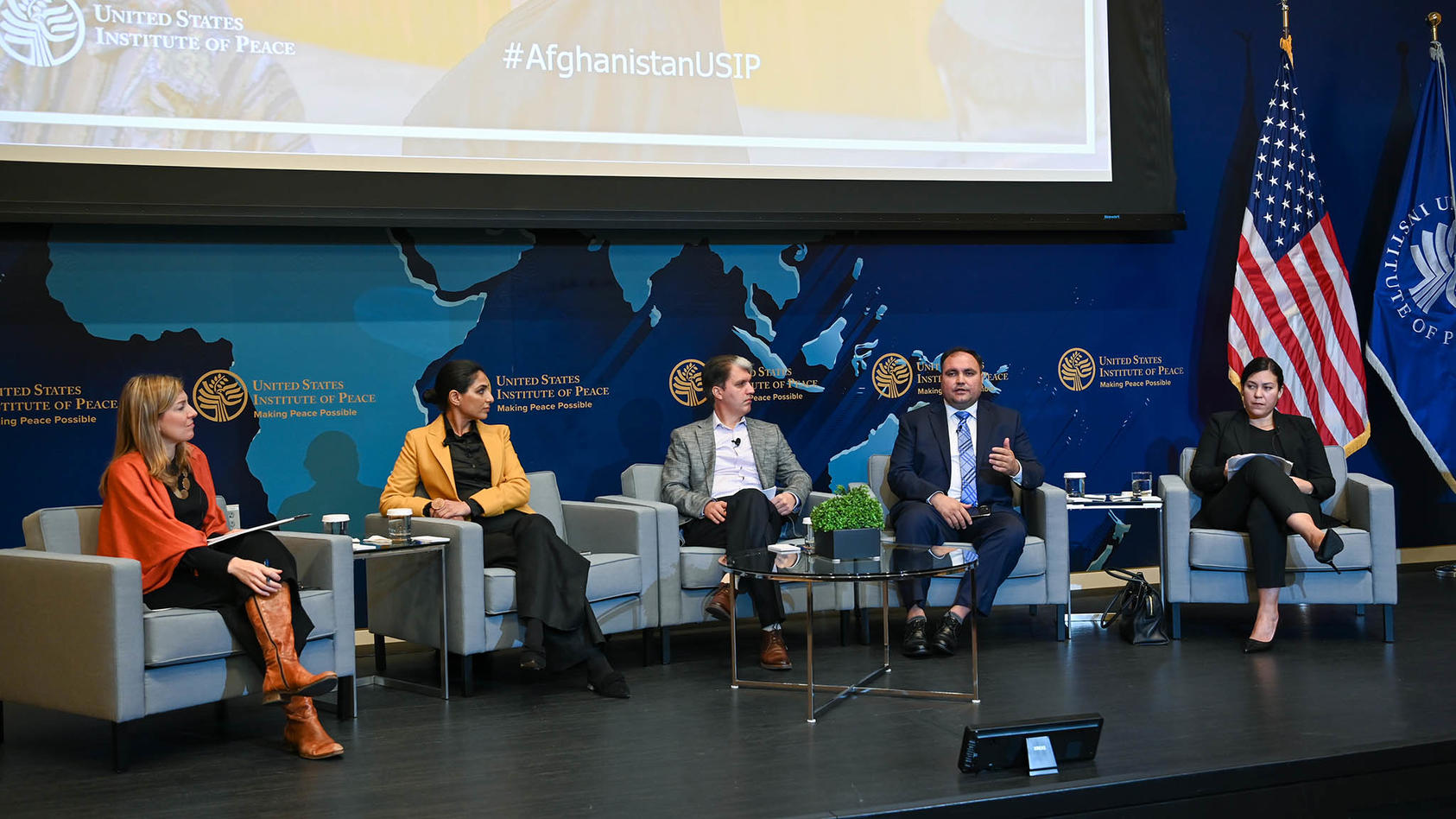Protecting Independent Media in the Taliban’s Afghanistan
A Look at the Current Afghan Media Landscape and How to Protect Media Freedom Under Taliban Rule
The expansion of freedom of expression and the emergence of a vibrant free press were among the biggest achievements of the 2001-2021 period and made Afghanistan a standout in the region for independent media. But since taking power in August 2021, the de facto Taliban government has eroded these gains, leaving the future of free media in Afghanistan unclear. Over the past year, the Taliban have shut down and restricted media organizations, detained journalists and imposed harsher restrictions on female reporters. However, media organizations are fighting back, finding innovative ways to get accurate, timely information to the Afghan public.

According to Reporters Without Borders, in the year since the Taliban takeover, Afghanistan has lost 40 percent of its media outlets and 60 percent of its journalists, including a steeper decline in women journalists. A free press in Afghanistan is essential for Afghans to hold their government accountable and for human rights monitoring. Amid the economic and humanitarian crises facing the country, Afghans also rely on the media for life-saving information about humanitarian aid and international assistance.
On January 19, USIP and Voice of America hosted a discussion with journalists and media experts about the challenges facing media in Afghanistan today and what those both inside and outside the country are doing — and can do — to protect media freedom and continue their work safely. The conversation also looked at lessons from other authoritarian contexts to discuss what has worked to preserve media freedom in hostile environments.
Continue the conversation on Twitter using #AfghanistanUSIP.
Hear a one-on-one interview with Ayesha Tanzeem, director of Voice of America's South and Central Asia Division, in our Event Extra podcast.
Speakers
Ayesha Tanzeem
Director of the South and Central Asia Division and Former Bureau Chief for Afghanistan and Pakistan, Voice of America
Rahim Gul Sarwan
Senior Correspondent, Voice of America – Afghanistan
Barry Salaam
Senior Program Officer, Afghanistan, U.S. Institute of Peace
Gypsy Guillén Kaiser
Advocacy and Communications Director, Committee to Protect Journalists
Kate Bateman, moderator
Senior Expert, Afghanistan, U.S. Institute of Peace



